I stared up at the ebbing quarter moon and the stars scattered like a handful of salt across the faraway sky.
BILLY COLLINSWhen you get a poem [in a public place], it happens to you so suddenly that you don’t have time to deploy your anti-poetry deflector shields that were installed in high school.
More Billy Collins Quotes
-





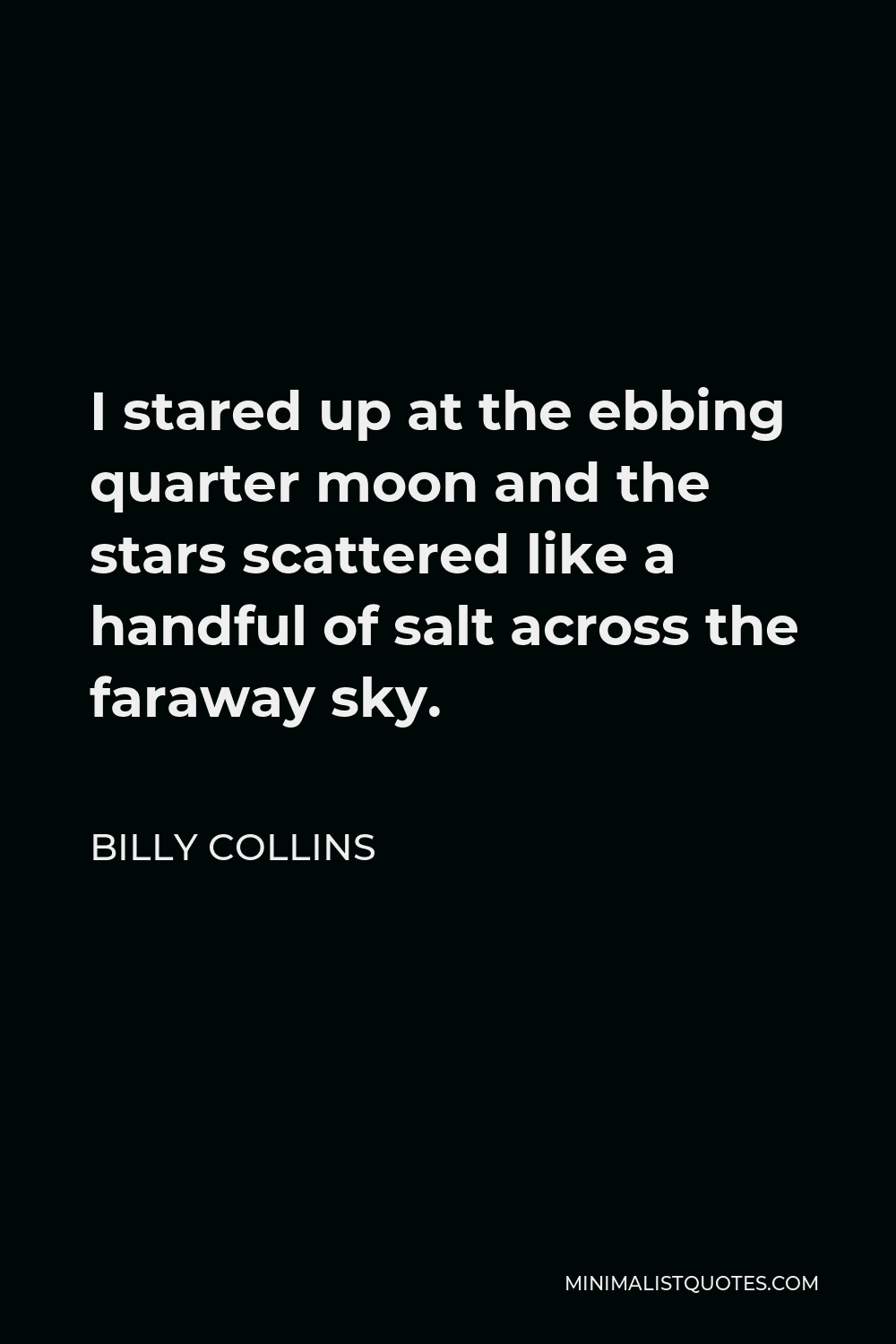
-






I have one of these early memories where I’m in the back of my parents’ car, a place I loved to spend a lot of time as an only child, not having to fight with venomous siblings over the only toy.
BILLY COLLINS -





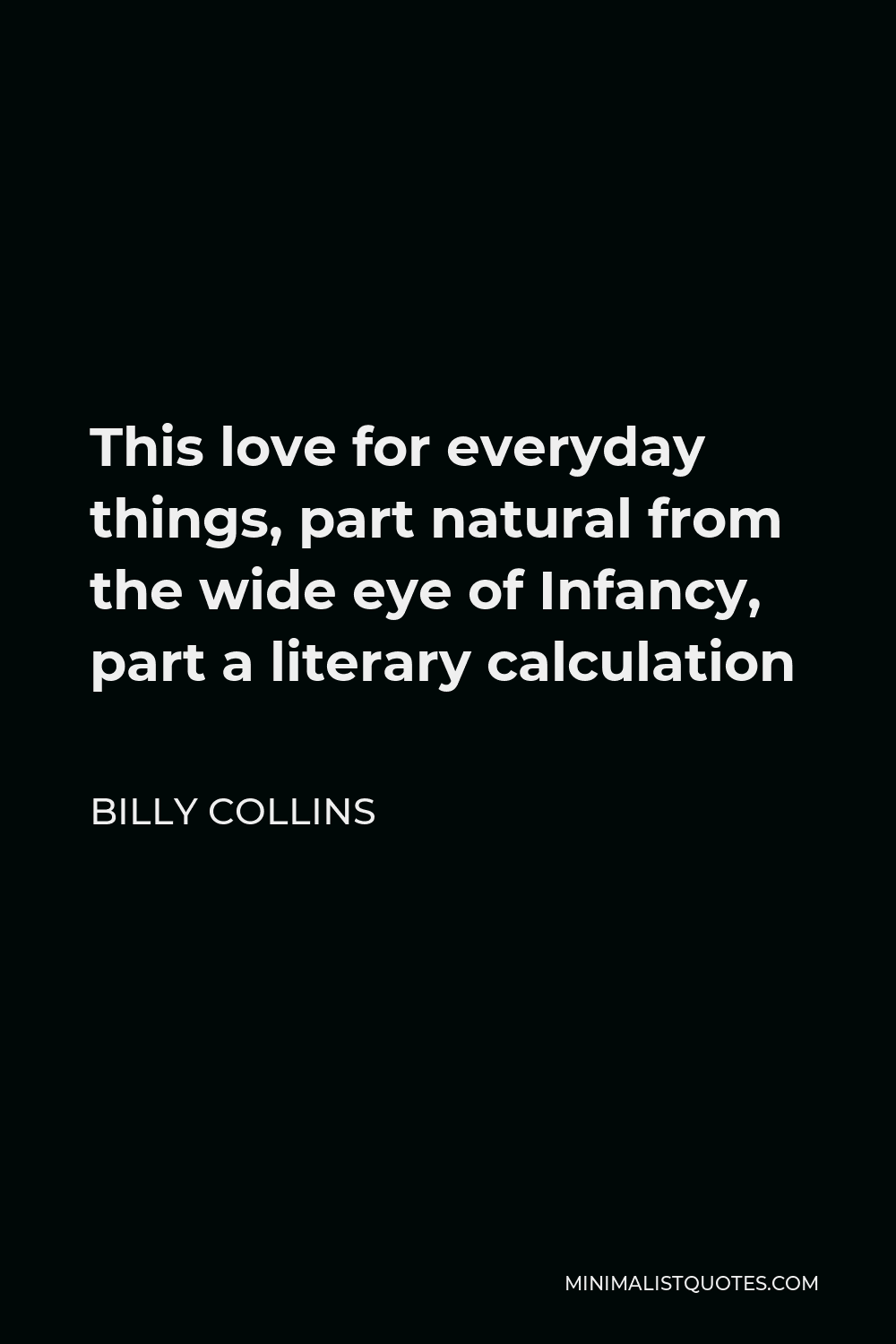
This love for everyday things, part natural from the wide eye of Infancy, part a literary calculation
BILLY COLLINS -





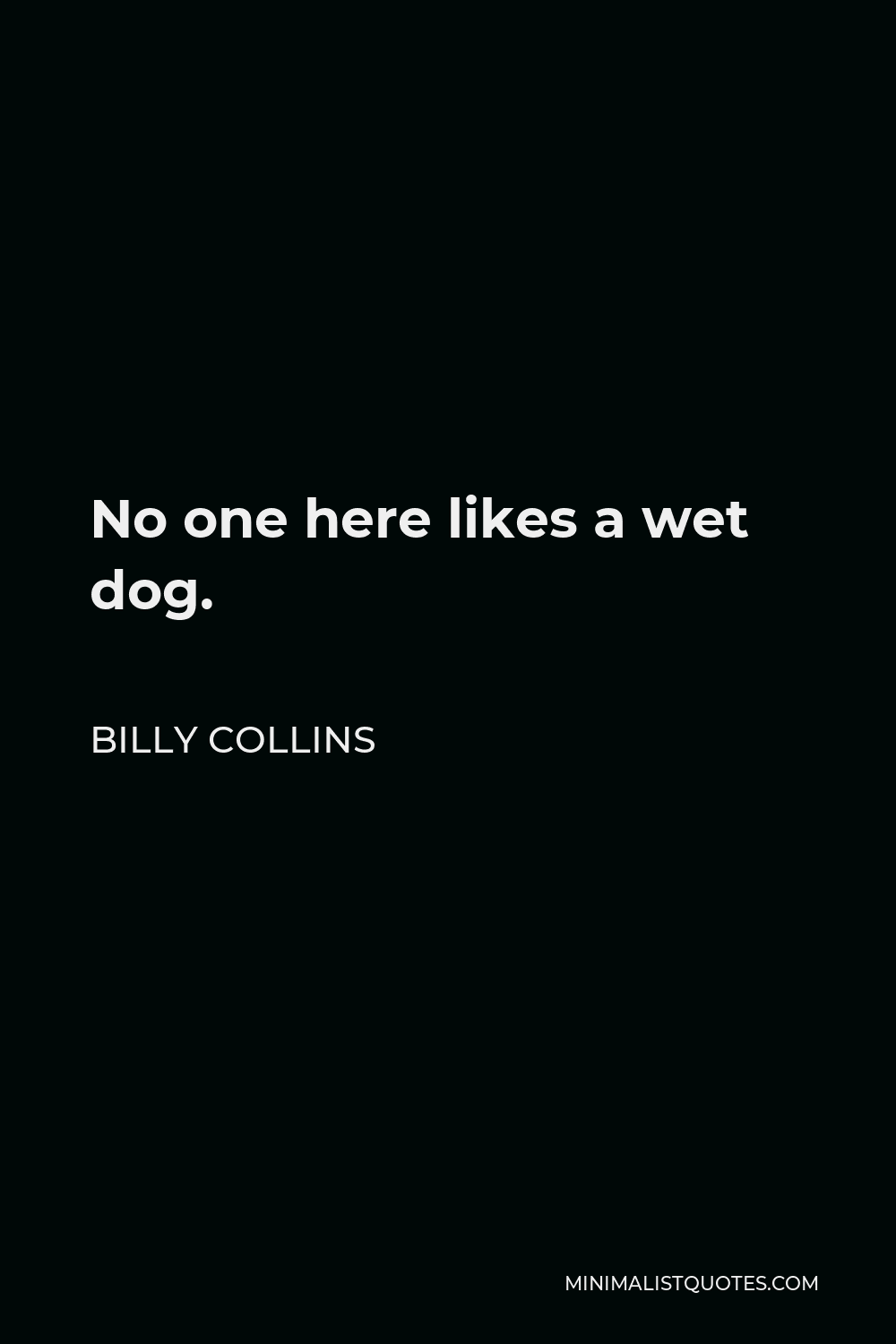
No one here likes a wet dog.
BILLY COLLINS -





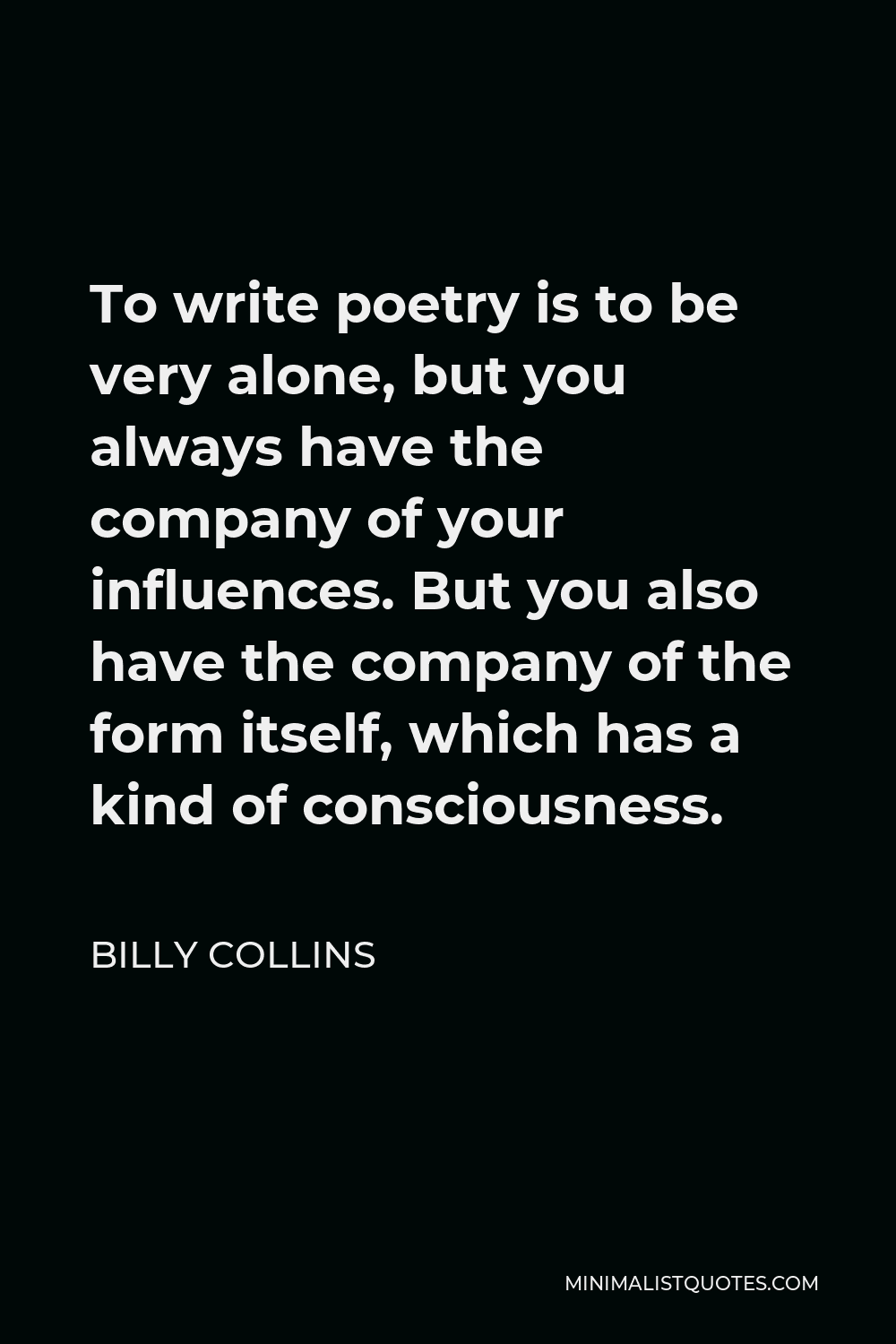
To write poetry is to be very alone, but you always have the company of your influences. But you also have the company of the form itself, which has a kind of consciousness.
BILLY COLLINS -





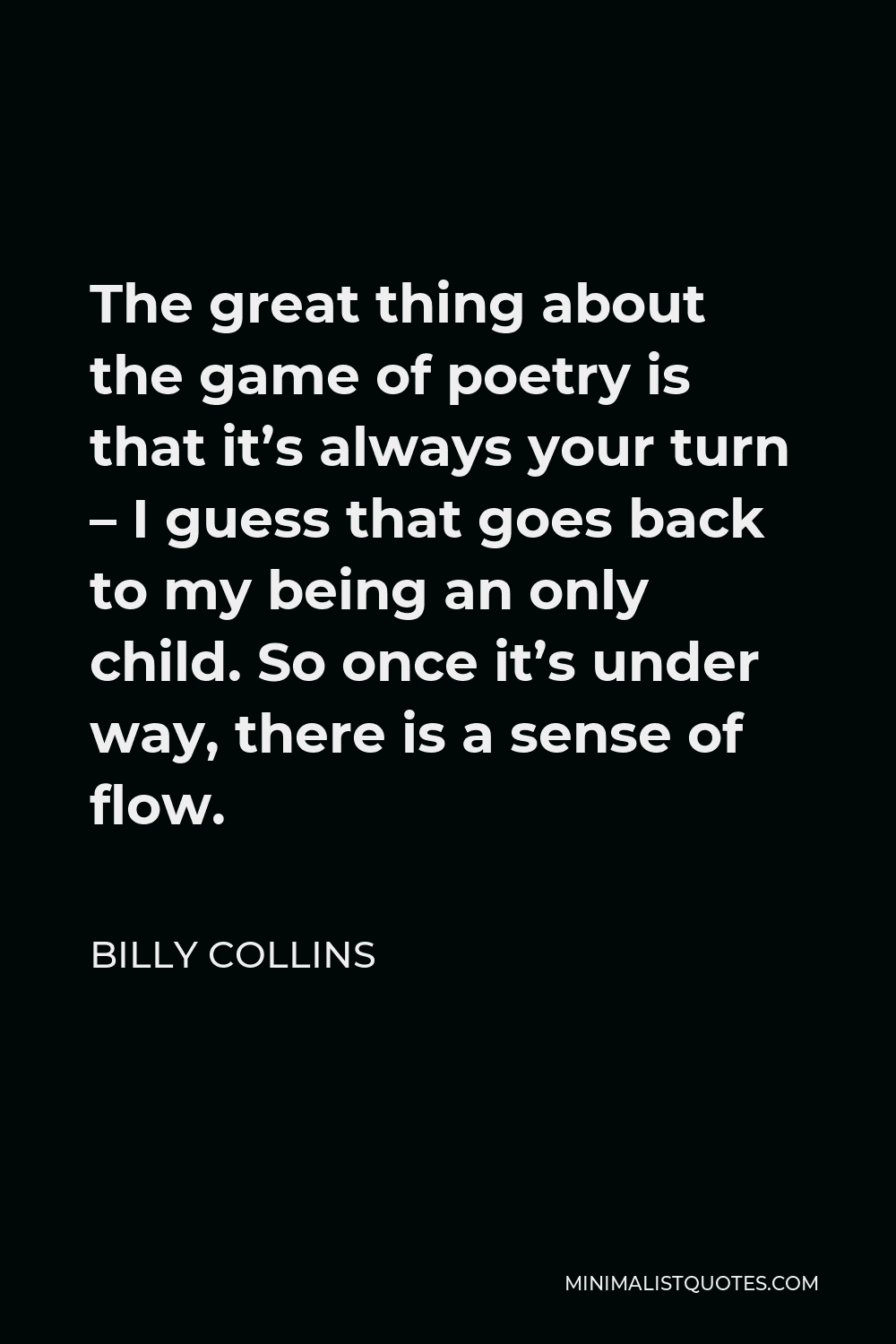
The great thing about the game of poetry is that it’s always your turn – I guess that goes back to my being an only child. So once it’s under way, there is a sense of flow.
BILLY COLLINS -





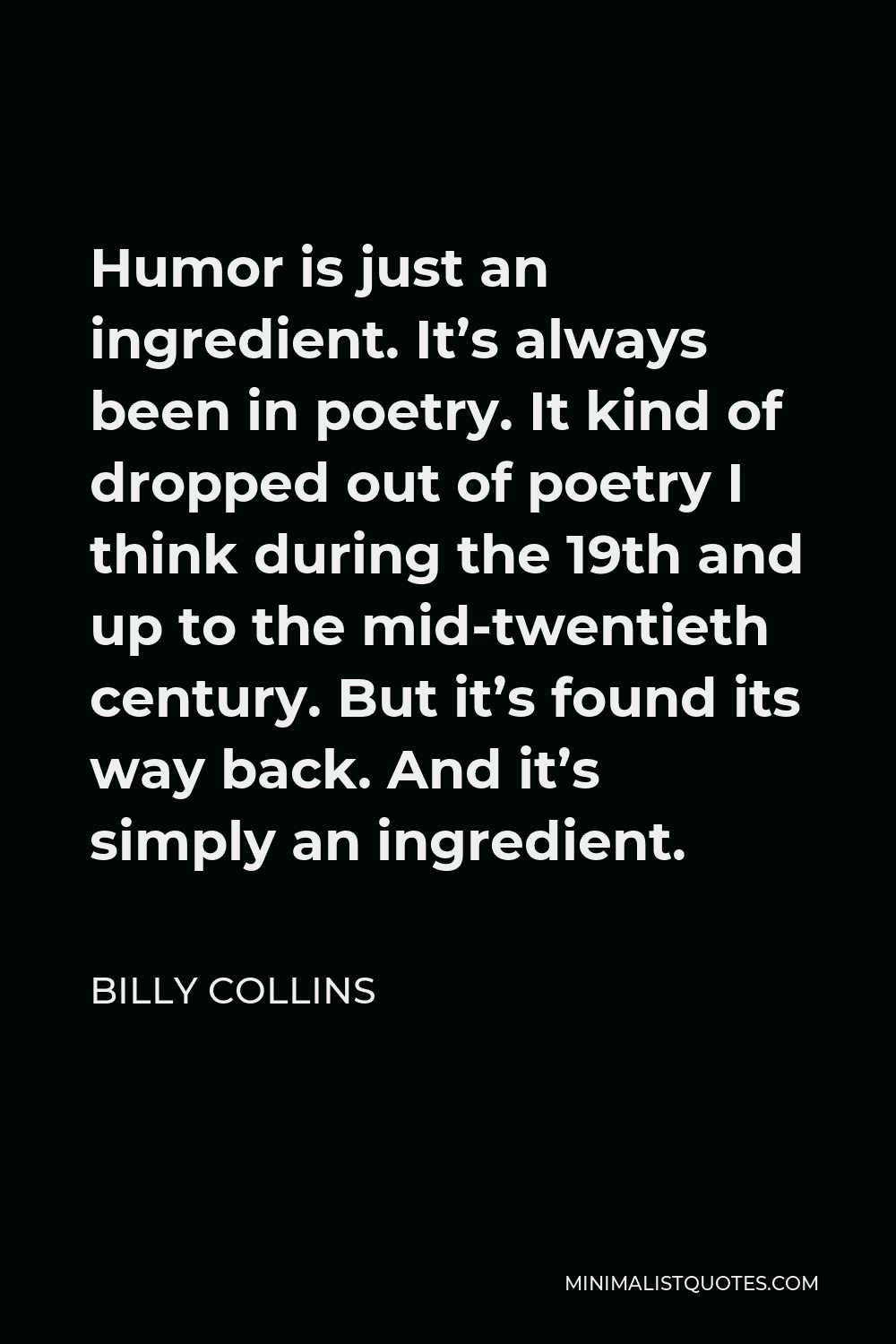
Humor is just an ingredient. It’s always been in poetry. It kind of dropped out of poetry I think during the 19th and up to the mid-twentieth century. But it’s found its way back. And it’s simply an ingredient.
BILLY COLLINS -





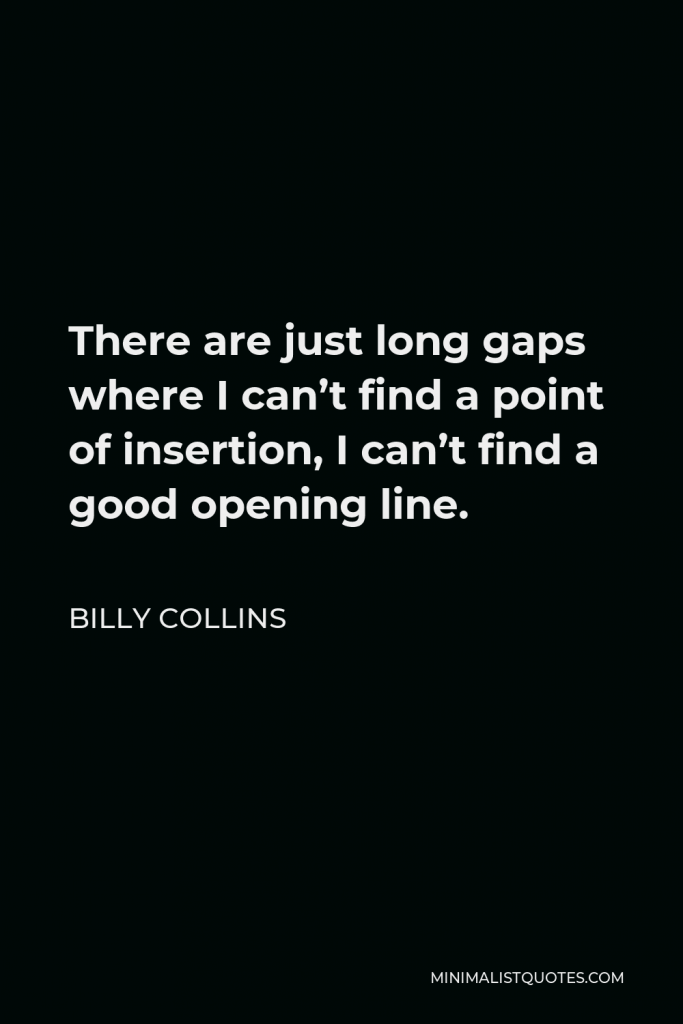

There are just long gaps where I can’t find a point of insertion, I can’t find a good opening line.
BILLY COLLINS -





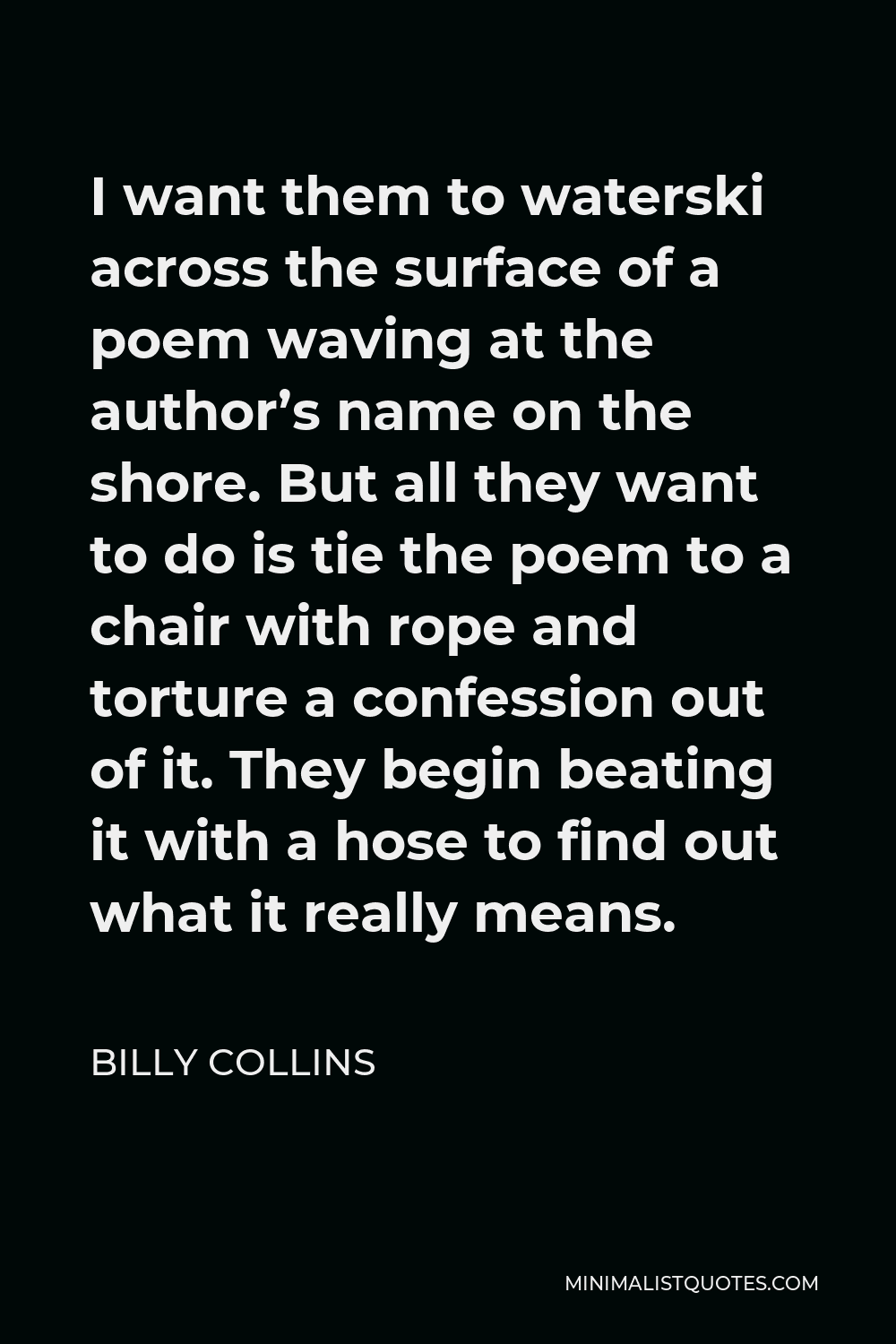
I want them to waterski across the surface of a poem waving at the author’s name on the shore. But all they want to do is tie the poem to a chair with rope and torture a confession out of it. They begin beating it with a hose to find out what it really means.
BILLY COLLINS -





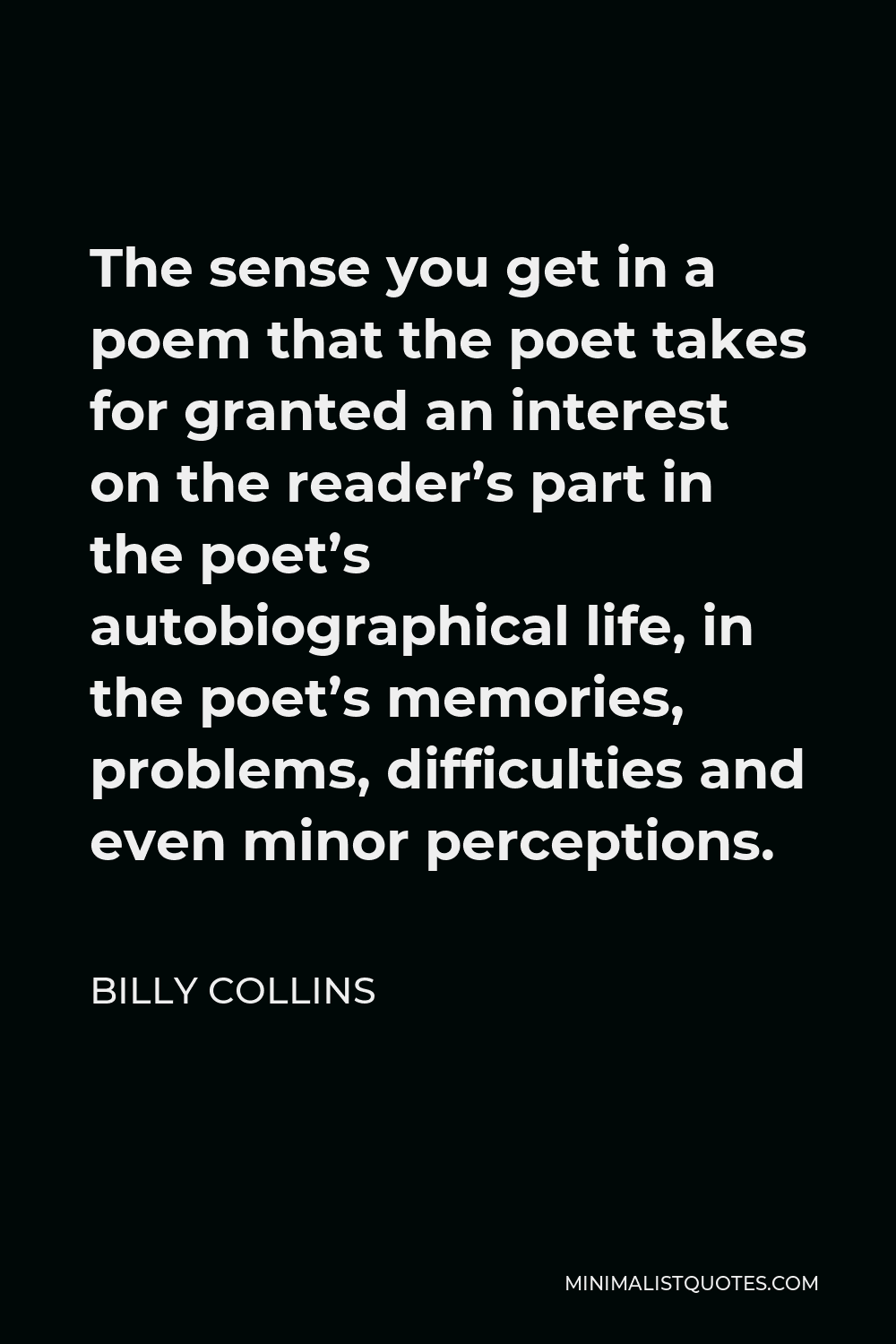
The sense you get in a poem that the poet takes for granted an interest on the reader’s part in the poet’s autobiographical life, in the poet’s memories, problems, difficulties and even minor perceptions.
BILLY COLLINS -





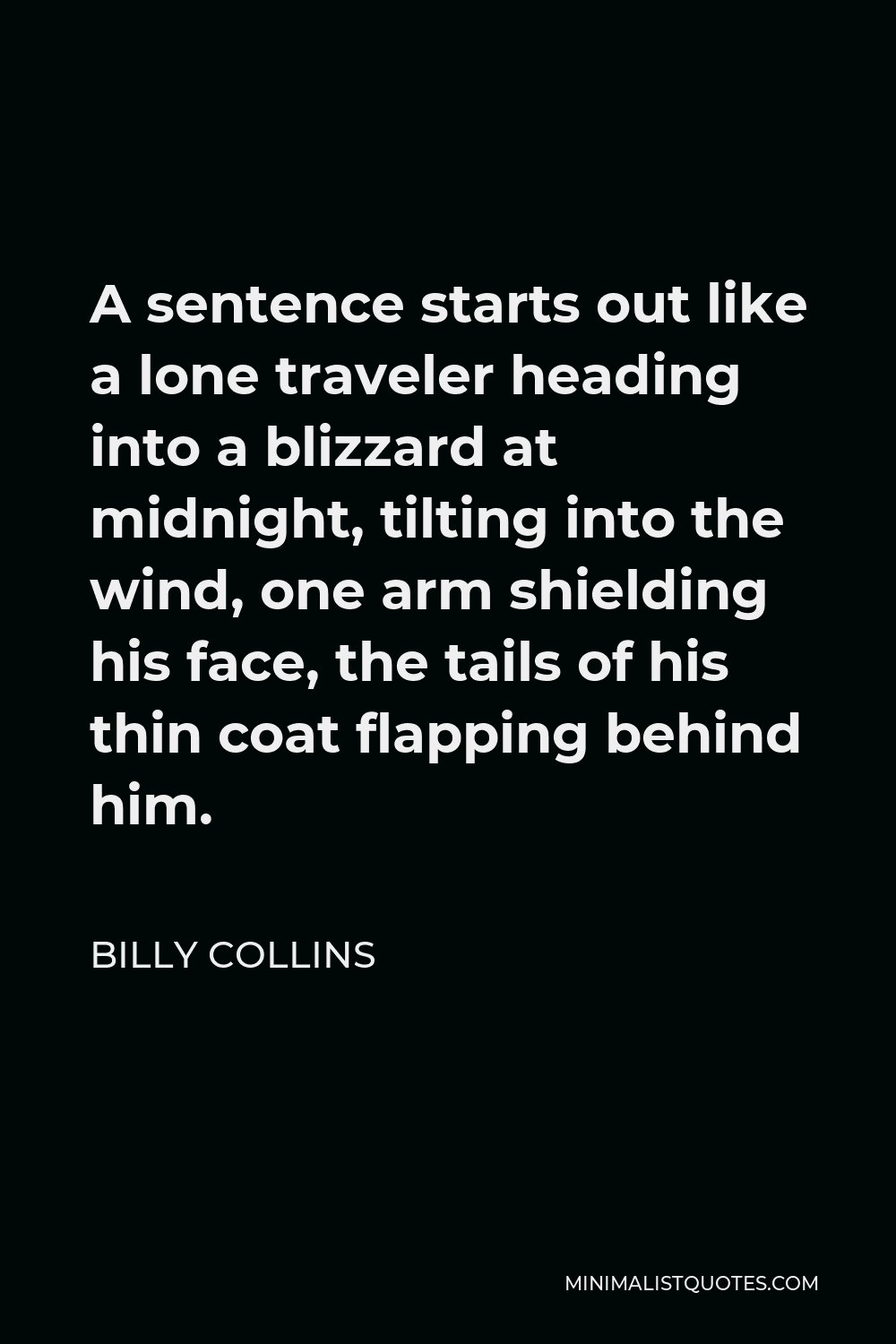
A sentence starts out like a lone traveler heading into a blizzard at midnight, tilting into the wind, one arm shielding his face, the tails of his thin coat flapping behind him.
BILLY COLLINS -





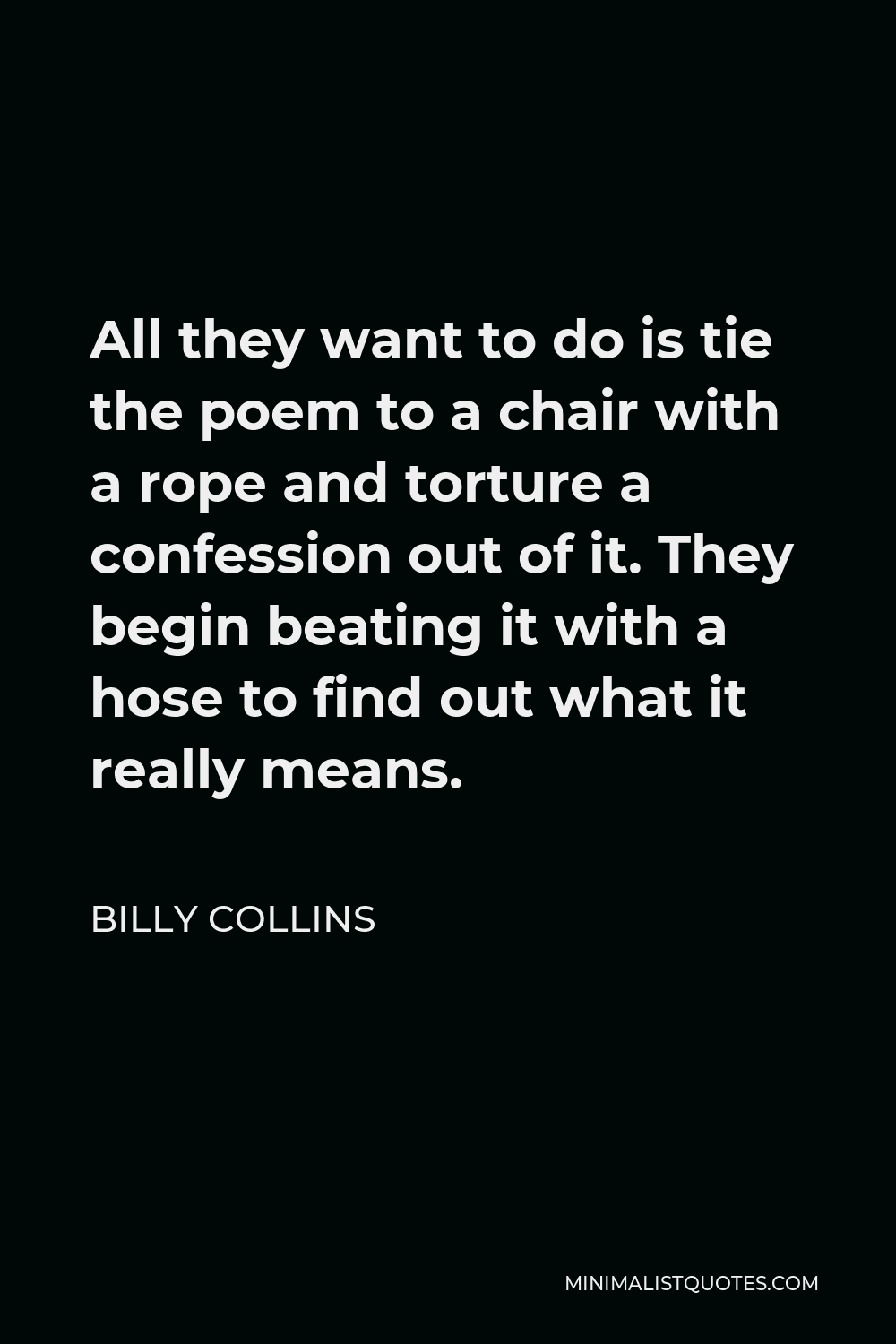
All they want to do is tie the poem to a chair with a rope and torture a confession out of it. They begin beating it with a hose to find out what it really means.
BILLY COLLINS -





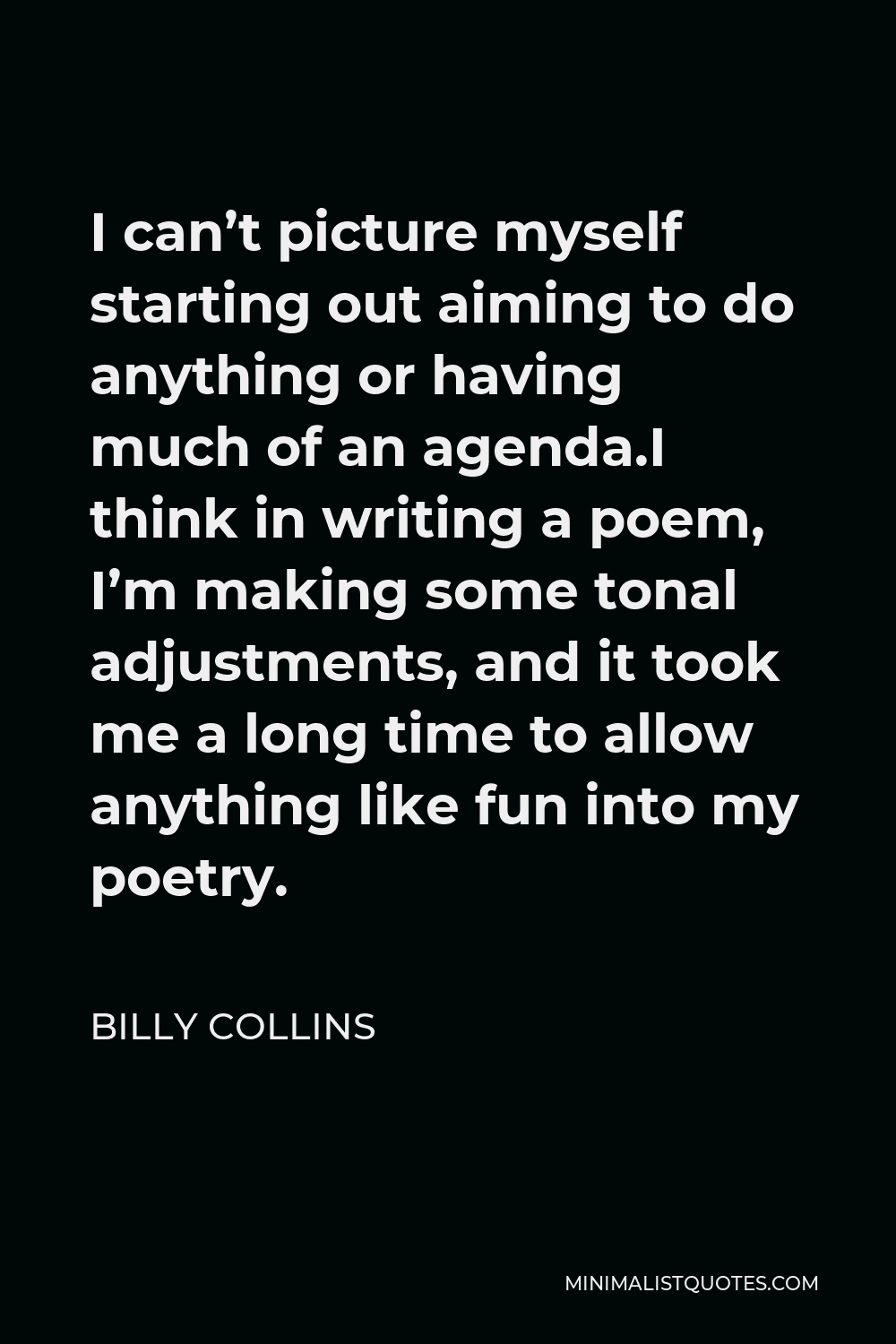
I can’t picture myself starting out aiming to do anything or having much of an agenda.I think in writing a poem, I’m making some tonal adjustments, and it took me a long time to allow anything like fun into my poetry.
BILLY COLLINS -





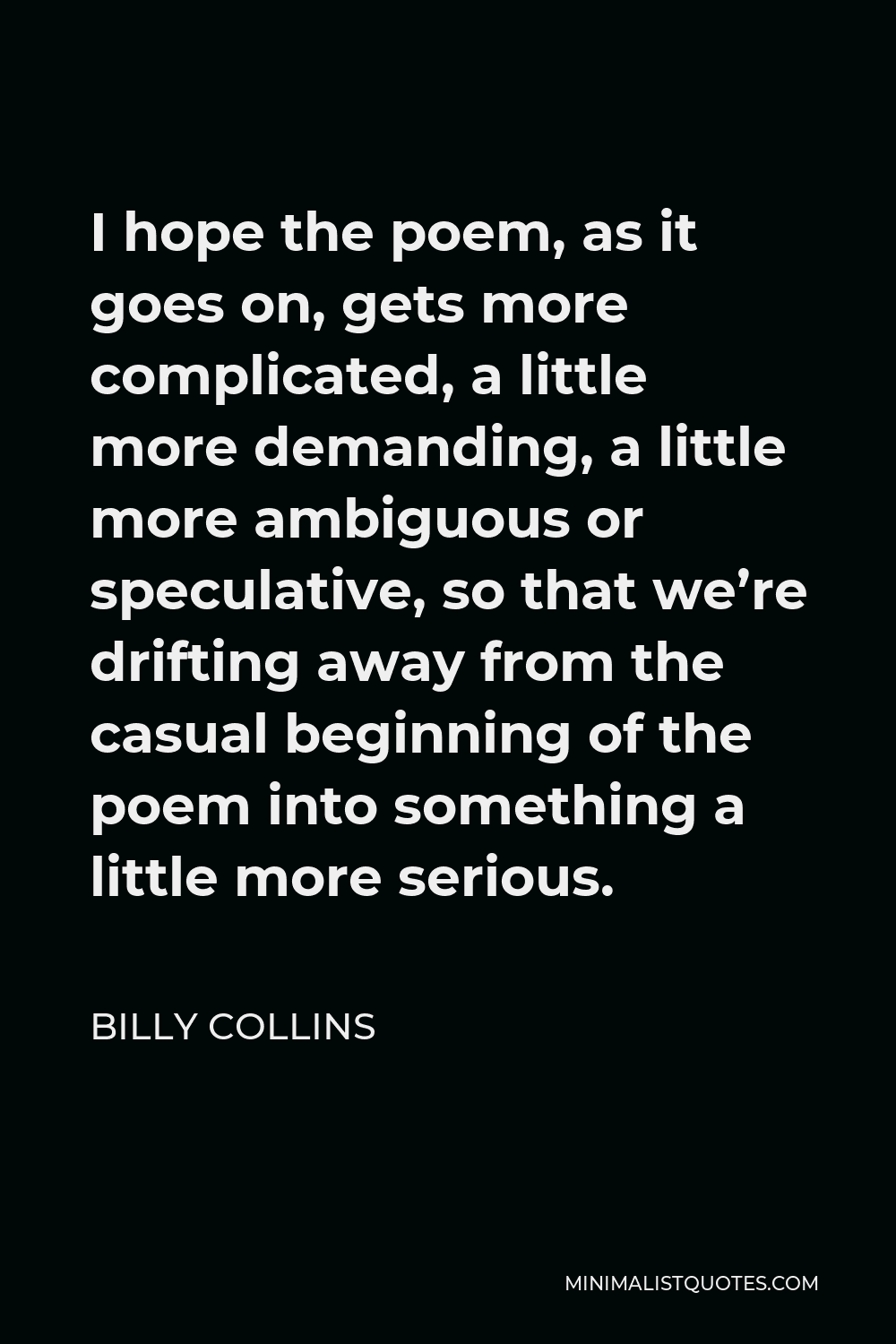
I hope the poem, as it goes on, gets more complicated, a little more demanding, a little more ambiguous or speculative, so that we’re drifting away from the casual beginning of the poem into something a little more serious.
BILLY COLLINS -





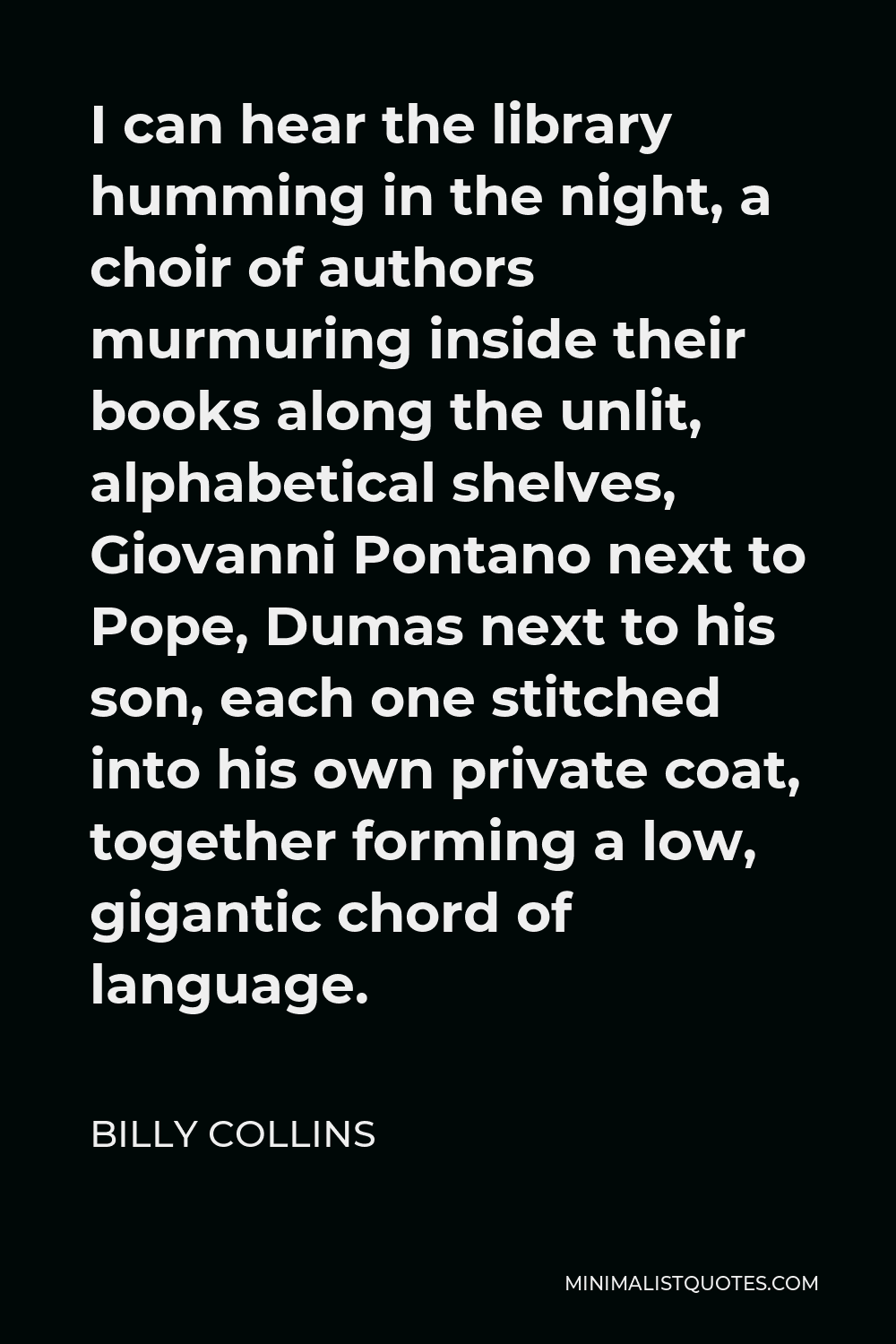
I can hear the library humming in the night, a choir of authors murmuring inside their books along the unlit, alphabetical shelves, Giovanni Pontano next to Pope, Dumas next to his son, each one stitched into his own private coat, together forming a low, gigantic chord of language.
BILLY COLLINS -





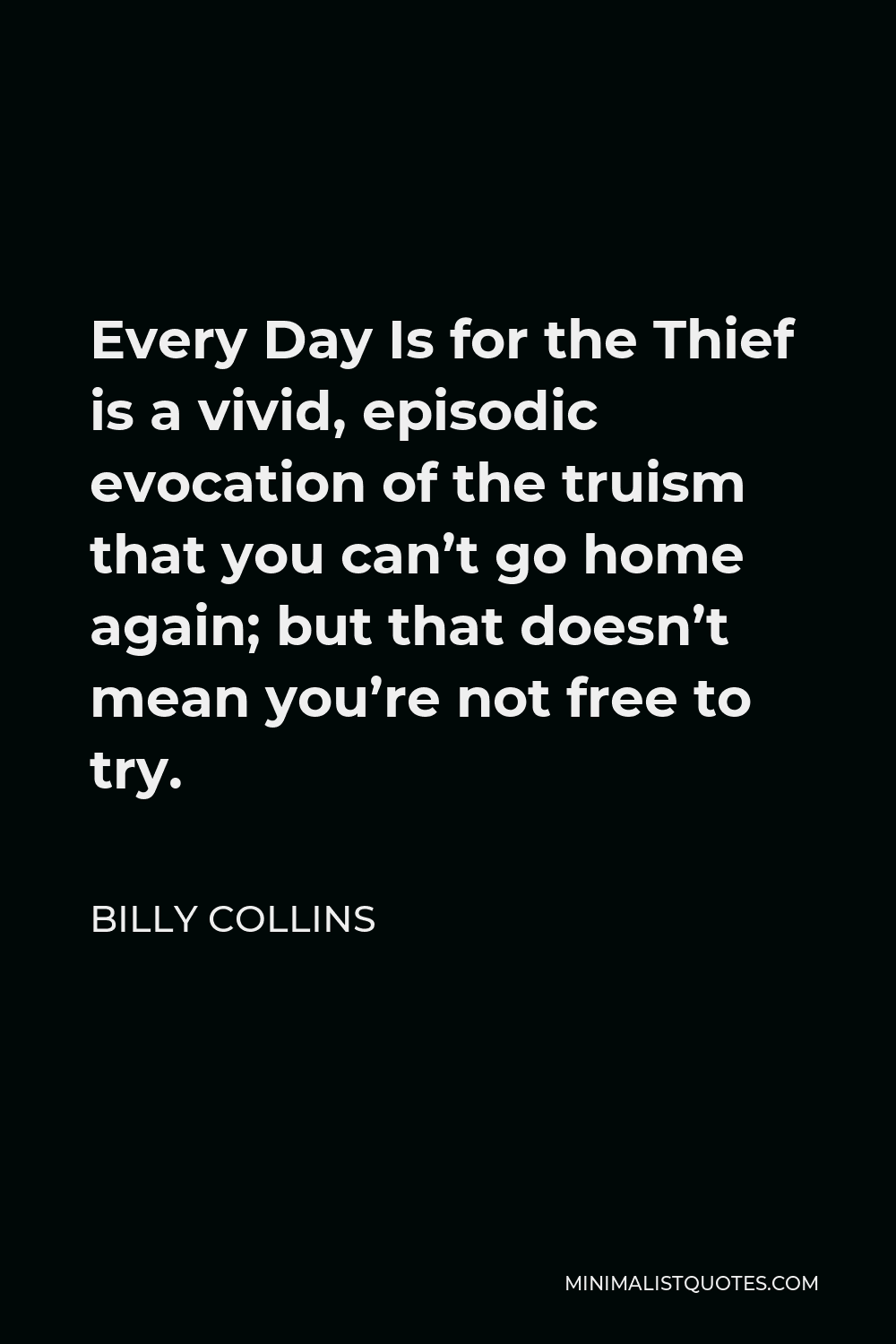
Every Day Is for the Thief is a vivid, episodic evocation of the truism that you can’t go home again; but that doesn’t mean you’re not free to try.
BILLY COLLINS
![Billy Collins Quote - When you get a poem [in a public place], it happens to you so suddenly that you don’t have time to deploy your anti-poetry deflector shields that were installed in high school.](https://minimalistquotes.com/images/when-you-get-a-poem-in-a-public-place-it-happens-t.jpg)
![Billy Collins Quote - When you get a poem [in a public place], it happens to you so suddenly that you don’t have time to deploy your anti-poetry deflector shields that were installed in high school.](https://minimalistquotes.com/images/grey-when-you-get-a-poem-in-a-public-place-it.jpg)
![Billy Collins Quote - When you get a poem [in a public place], it happens to you so suddenly that you don’t have time to deploy your anti-poetry deflector shields that were installed in high school.](https://minimalistquotes.com/images/blue-when-you-get-a-poem-in-a-public-place-it.jpg)
![Billy Collins Quote - When you get a poem [in a public place], it happens to you so suddenly that you don’t have time to deploy your anti-poetry deflector shields that were installed in high school.](https://minimalistquotes.com/images/red-when-you-get-a-poem-in-a-public-place-it.jpg)
![Billy Collins Quote - When you get a poem [in a public place], it happens to you so suddenly that you don’t have time to deploy your anti-poetry deflector shields that were installed in high school.](https://minimalistquotes.com/images/brown-when-you-get-a-poem-in-a-public-place-it.jpg)
![Billy Collins Quote - When you get a poem [in a public place], it happens to you so suddenly that you don’t have time to deploy your anti-poetry deflector shields that were installed in high school.](https://minimalistquotes.com/images/white-when-you-get-a-poem-in-a-public-place-it.jpg)

